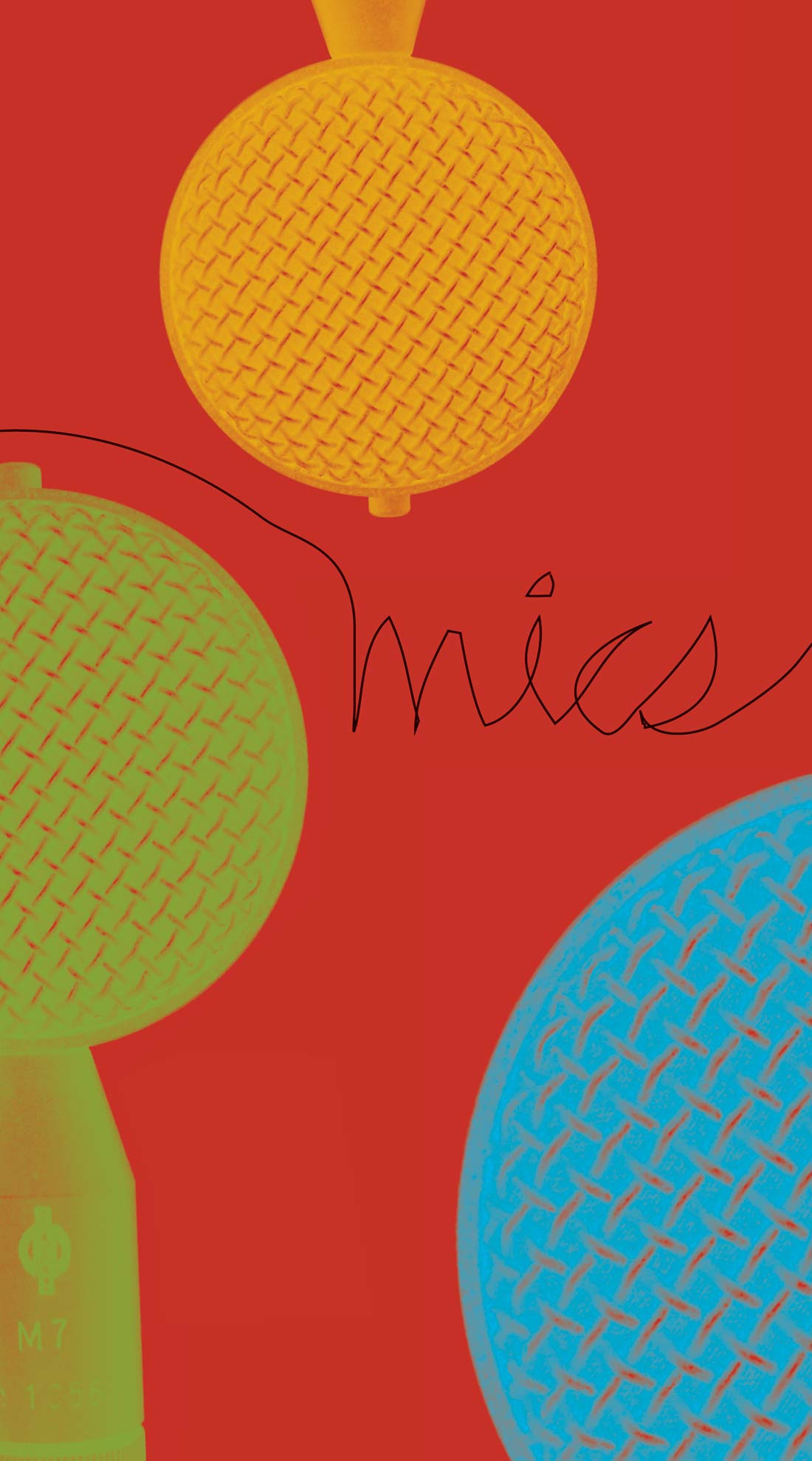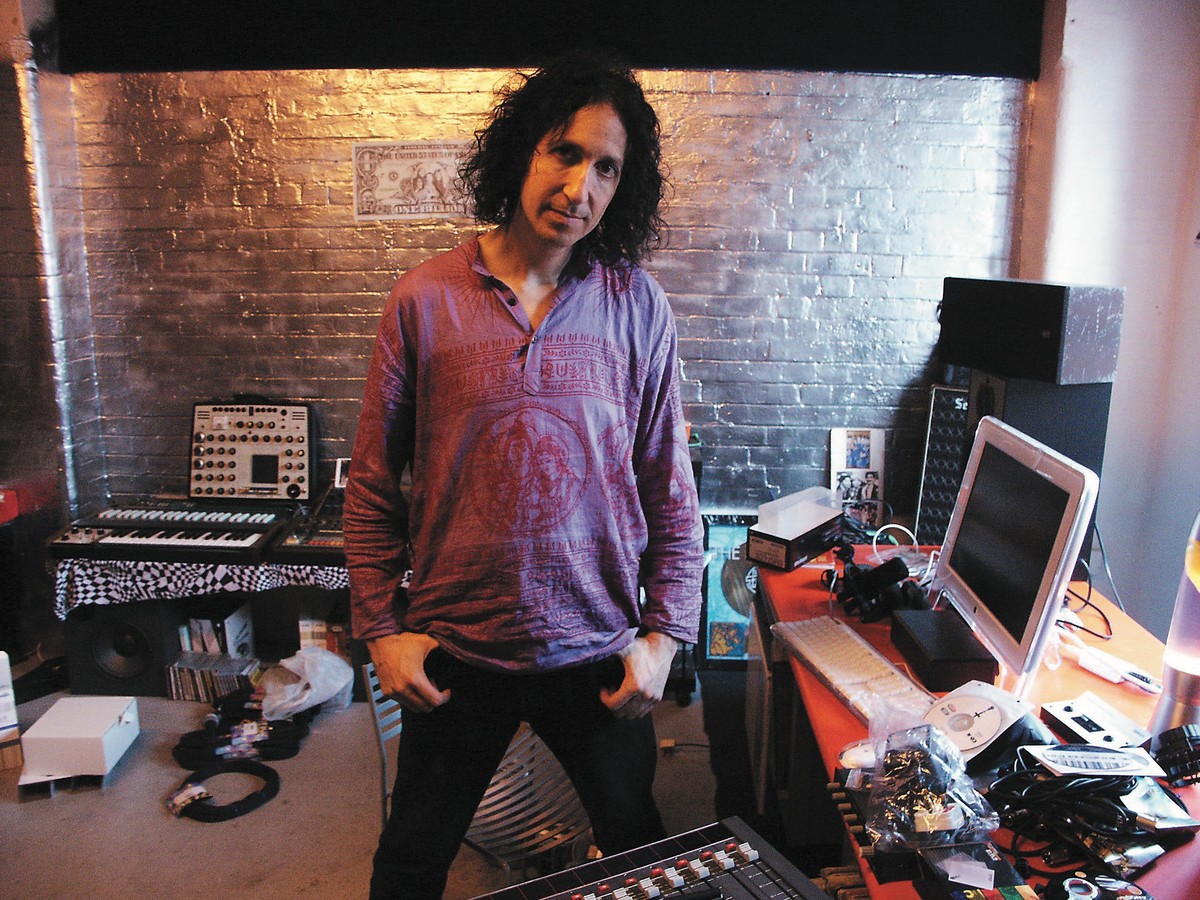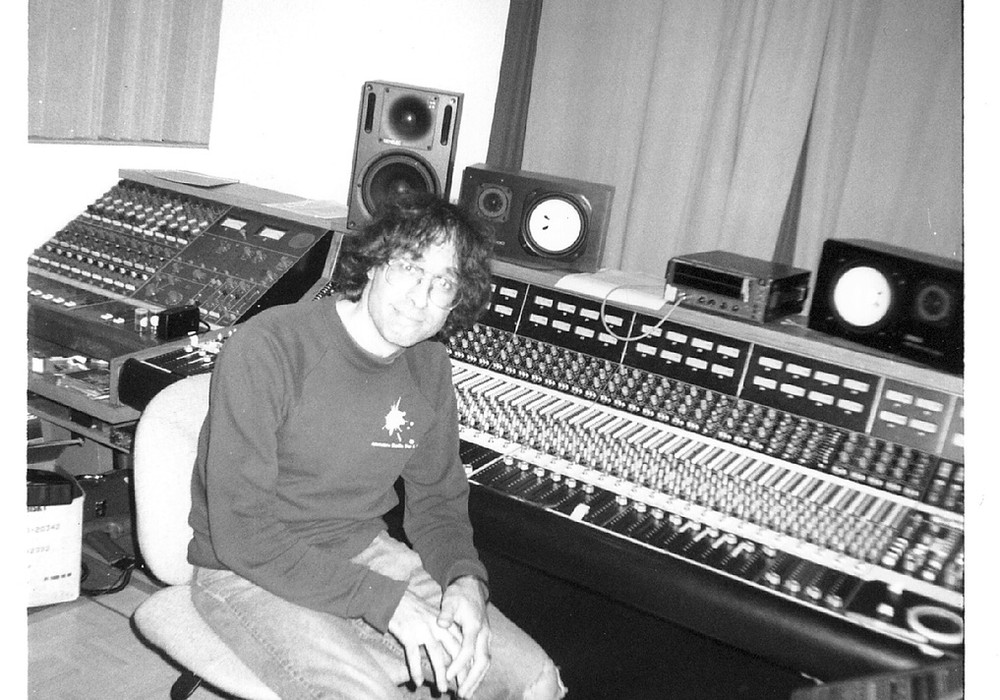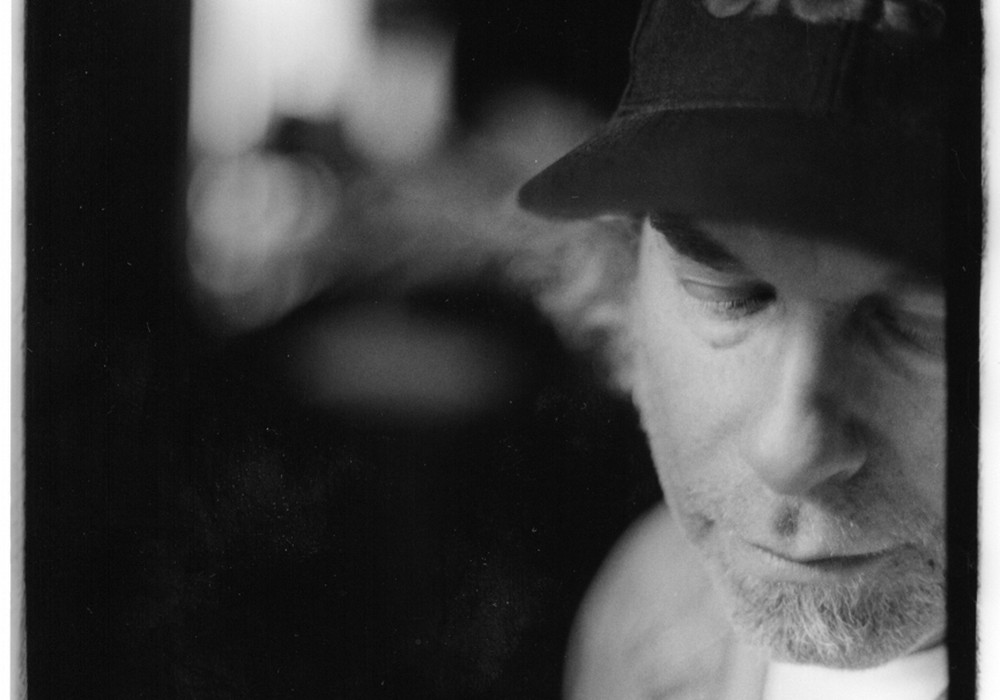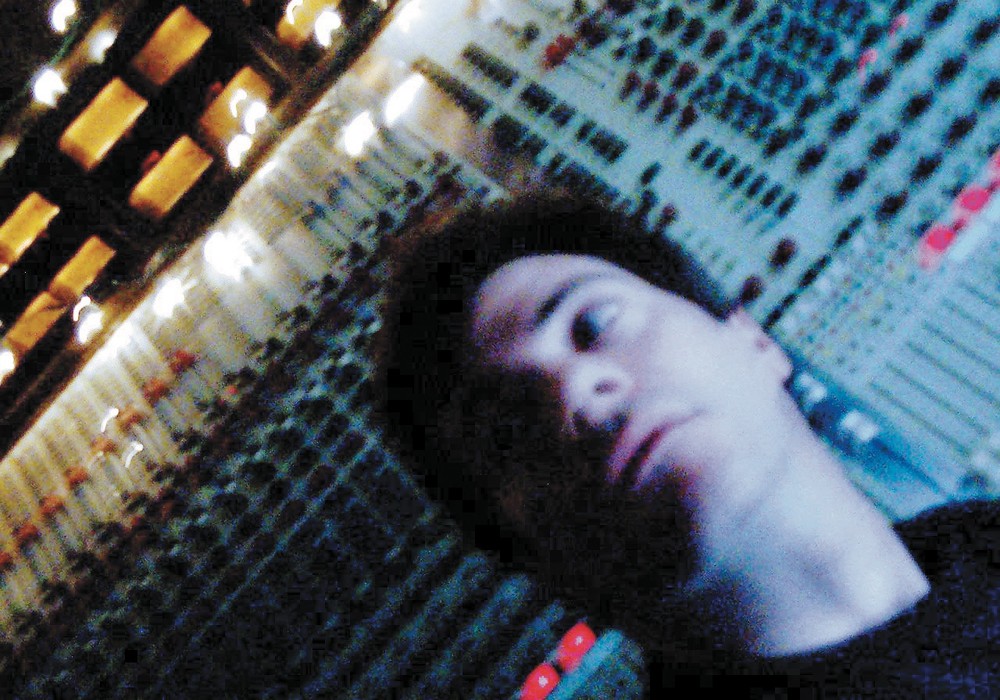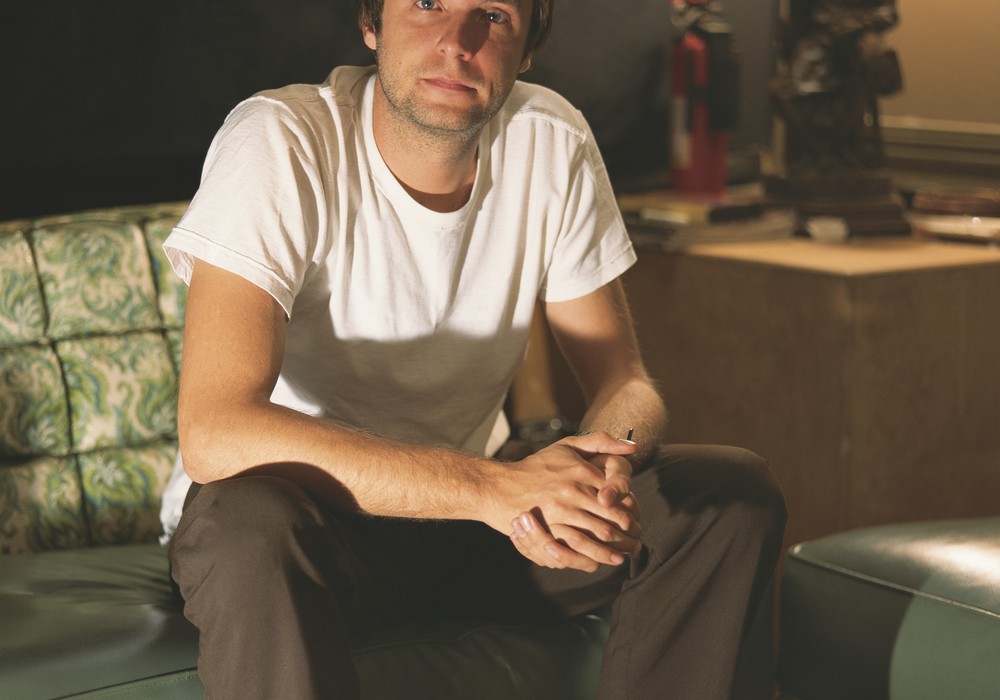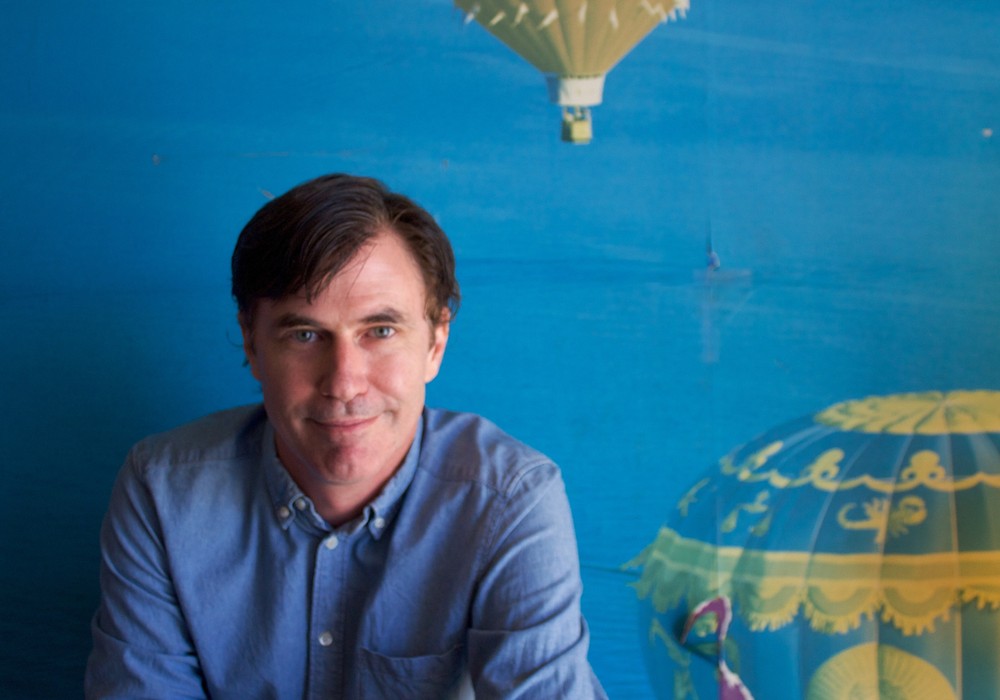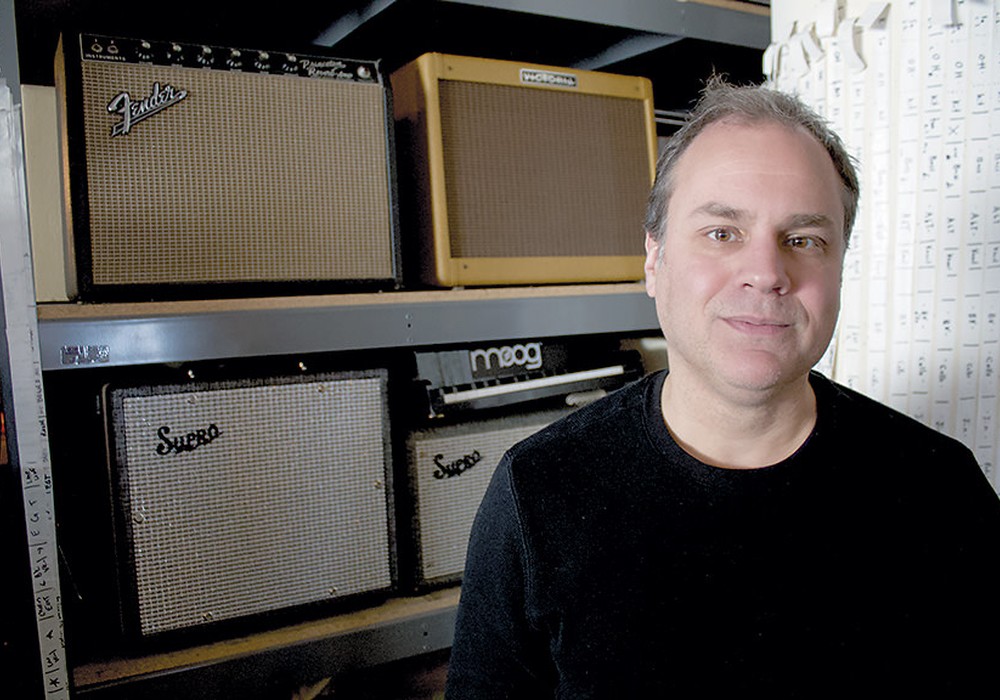For the past couple of years, Gordon and his partner, Anna Mercedes (whose family owns Bear Creek Studios in Seattle), have been settling into their studio, The Silver TransporterRaum. The studio, situated 20 minutes outside of London, is in its third incarnation. The original was in Berlin, followed by Gordon's first studio, in New York's Alphabet City. Gordon started The TransporterRaum with two goals in mind: learning Logic and the Kurzweil. Having spent the previous seven years in Seattle, Gordon had a good foot on the ground from being in a signed band, Sky Cries Mary. "I actually had some legs to stand on, whereas the first time I went to New York, it was after my studio burned down and I had no money and it was really hard."
What's it like working in London?
What it's like over here is that every studio has a Neve board. Even a moderately-priced studio has a giant stretch Neve board and tons of LA-2As and amazing microphone collections and kickass engineers who are like 18-23 years old who know how to do everything in Logic and Pro Tools and they're very helpful and they make you tea and they're all over you. It's so great recording here.
How are the rates compared to a studio of that caliber in the States?
I can get an amazing studio for £350 [about $500/day] plus another £250/day for a Pro Tools rig, so £750/day for a really kick ass studio for amazing results — with an engineer.
So the rigs aren't generally included in the rooms? They're rentals?
In the one set of studios I've been using, the Pro Tools is hired separately.
So they mostly have 2" [analog] machines?
Most studios I've been in have both 2" machines and Pro Tools. Usually they don't charge for the 2" 'cause it's there already. These are the particular studios I was using before I built my own. I'm using Pro Tools HD right now in conjunction with Logic and that's an amazing system. I never even heard it before I bought it. I just thought, I've used Mix Plus for a really long time and it's so good and if they're telling me it's going to be better, well, let's try it!
What else do you have other than HD?
What you can find here is floors and warehouses full of Neve boards and Amek boards and all these old English boards just waiting to be parted out by producers like me. I just got an insane little [Amek mixer] that's only about a foot and a half wide. I was excited by it because I thought, 'This will come in very useful.' What I didn't bargain for was when I plugged a vocal mic into this little Amek board. It just put to shame all the really expensive pieces of gear I own. I'm not going to be using a lot of the stuff I just bought because these Amek channels make singers sound superhuman — so incredibly characteristic.
Do you record at 96 k?
I never use 96 k. I use 24-bit, 44.1.
You haven't done any experimenting or anything?
I don't really care to. Basically this stuff is for CDs and I don't want some horrible surprise just before the end of my process.
You aren't doing any projects that are ending up on vinyl as well?
Yeah, definitely. You think it's worth trying?
Yeah. The only downfall as I can see it is storage. You're increasing your file sizes.
In many cases I can't even hear the difference between 16 and 24-bit. I just don't notice it that much. I would like to hear it and have someone show me the difference. I tend to get sounds that sound a little bit wrecked anyway so I like it to sound a little bit old-fashioned — like a little bit fighting for its life.
I read somewhere that you had worked back in the day on industrial music.
I really only worked on my own compositions for most of my life. Most of my life I just spent with a tape recorder. For the first decade, it was a 4-track reel-to- reel tape recorder and I was there every single day from the moment I woke up to the moment I went to sleep with a few breaks in between. With my ARP Odyssey, an Echoplex, a phase shifter, a Rat fuzz pedal and a guitar and a microphone making thousands and thousands of songs. I come from synthesizers from so far back that industrial music happened halfway through my synth career. I got really excited — my mind was completely blown in 1985. I'd just come back from Europe and had been doing a lot of technical and outer space uses of electronic music up through the '70s and the early '80s and I saw a band in Canada called Skinny Puppy. They were one of the seminal bands that put...
